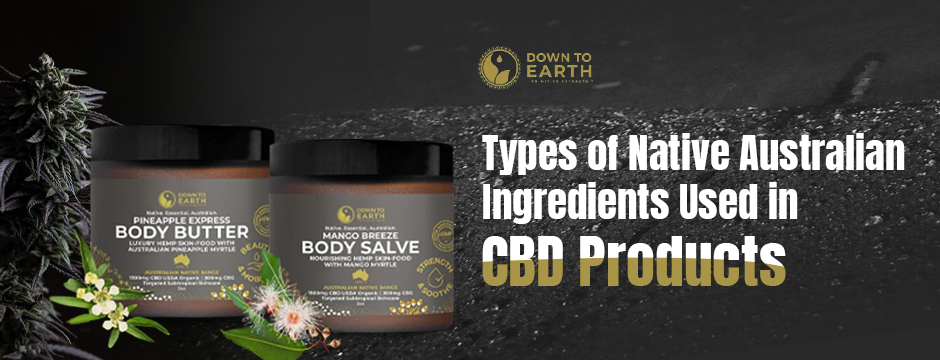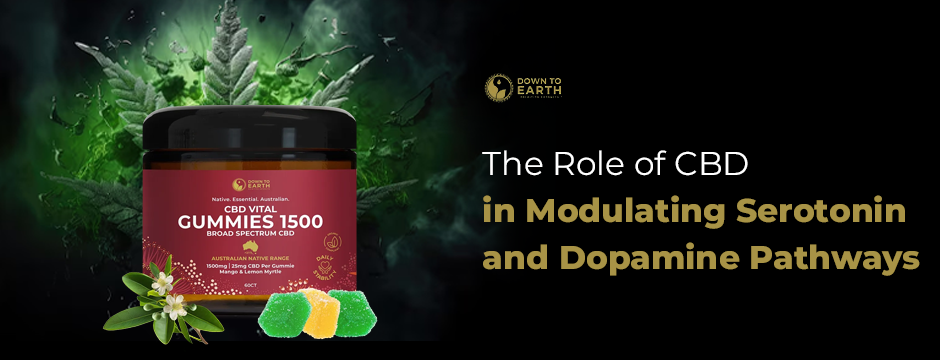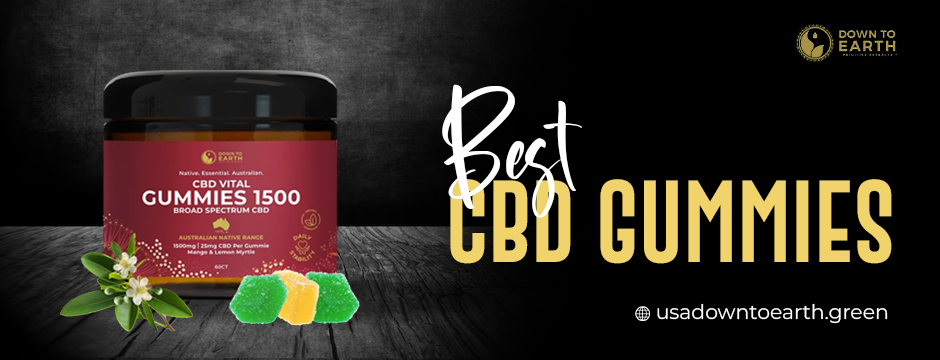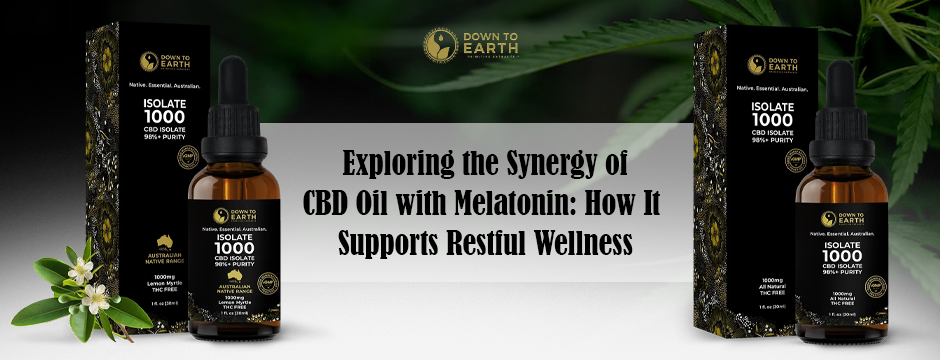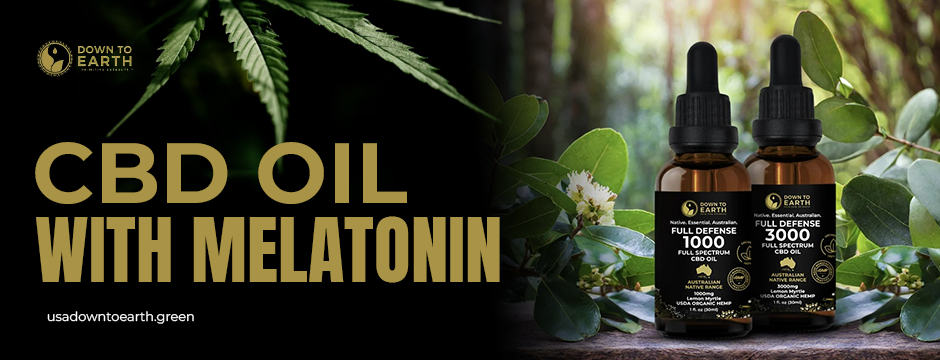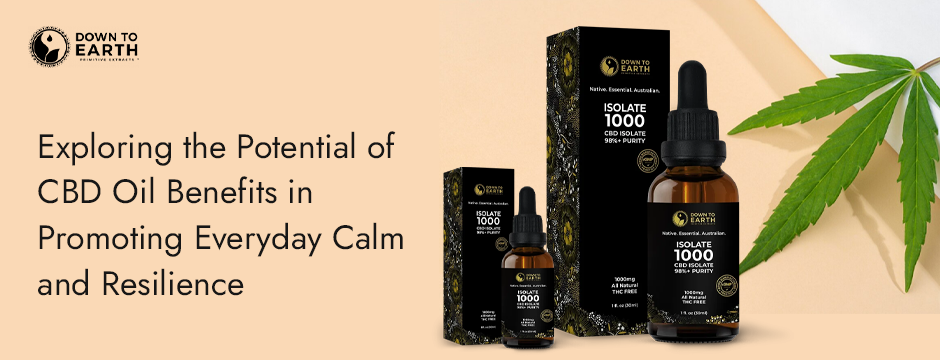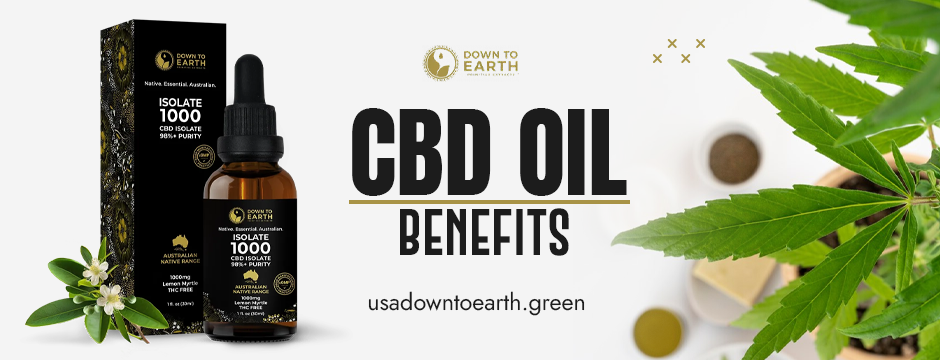Types of Native Australian Ingredients Used in CBD Products
When it comes to well-being, it’s usually the little things, the natural things, that have the biggest impact. In Australia, the indigenous landscape is teeming with super-plant species that have been utilized for centuries—long before anyone even thought about the word “wellness.” Now, these amazing indigenous ingredients are being discovered and making their way into some of the most innovative wellness products, including CBD products.
But what happens when ancient Australian botanicals and modern plant science come together? The result is something very special: special formulations that respect our land, culture, and nature’s own medicines—all without overhyping or crossing the line of what science allows.
Let’s take a closer look at the native ingredients you may find in CBD products, how they’re utilized, and why they’re worth paying attention to.
What Makes a Plant Native?
Simply put, a native ingredient is something that grew up here naturally and took hold here in Australia. They’re not imports or grown-in crops—though they have taken thousands of years to establish, they tend to come with history, use, and tradition just as deep.
These plants are not only lovely to behold or sweet to smell. Several of them have naturally occurring compounds that enhance well-being, make skin feel better, or bring simple joy into your day. It’s not surprising that some of them now interact synergistically with CBD to improve the experience.
Lemon Myrtle – More Than Just a Scent
Lemon Myrtle has been one of Australia’s most iconic native botanicals for centuries. Native to Northern New South Wales and Queensland, this aromatic leaf is rich in natural citral—a substance with antioxidant properties well-documented in scientific literature.
In traditional applications, Lemon Myrtle was not only an aromatic herb. It was a cooking staple, a cleansing tool, and was occasionally even used to freshen the air or create simple balms.
When used with CBD, Lemon Myrtle adds a clean, citrusy note—one that makes oil and edible products taste lighter, brighter, and easier to incorporate. Naturally, it’s not modifying the efficacy of cannabidiol, but it makes the product feel enhanced in some way that both hearkens back to heritage and appeals to contemporary formulation.
Pineapple Myrtle – Uncommon and Astonishing
Now here’s a name you might not have heard before—Pineapple Myrtle. This is a relatively unusual native plant that has a fragrance that people describe as a fruit salad of tropical fruits. Imagine pineapple, banana, and a hint of citrus all rolled into one happy, zippy burst.
What’s particularly fascinating is how it’s utilized. The small twigs and leaves are harvested by hand and steam-distilled the same day, preserving the entire range of aroma and useful plant compounds. There is no blending whatsoever; this oil is as clean as it comes.
When added to a topical CBD balm or oil, Pineapple Myrtle does not directly interact with CBD on a molecular level—but it brings something worthwhile anyway. Alone, the aroma provides a ritualistic quality to using the product. It improves mood, invites regular use, and perfectly squares with a daily routine founded on self-care and relaxation.
Mango Myrtle – A Natural Match for CBD’s Aroma
Another exotic jewel in the indigenous botanical kingdom is Mango Myrtle. The plant may be difficult to source wild, but the effort is worth it. It’s also steam-distilled like Pineapple Myrtle, and the result is an essential oil that is reminiscent of ripe green mangoes—sweet, gentle, and slightly earthy.
What stands out most about Mango Myrtle is its terpene content. Terpenes are the organic, aromatic compounds present in numerous plants—cannabis among them—and are largely to blame for the scent and texture of essential oils. Mango Myrtle just so happens to contain a similar terpene composition to that of hemp and cannabis, making it a natural pairing for use with CBD.
Once more, it’s not about making any sort of claim about an increased effect. It’s about creating an experience—something that feels whole, comfortable, and grounded in nature. If you’ve ever applied a CBD balm that made you stop and smile simply because of its aroma, then something like Mango Myrtle likely had a role to play.
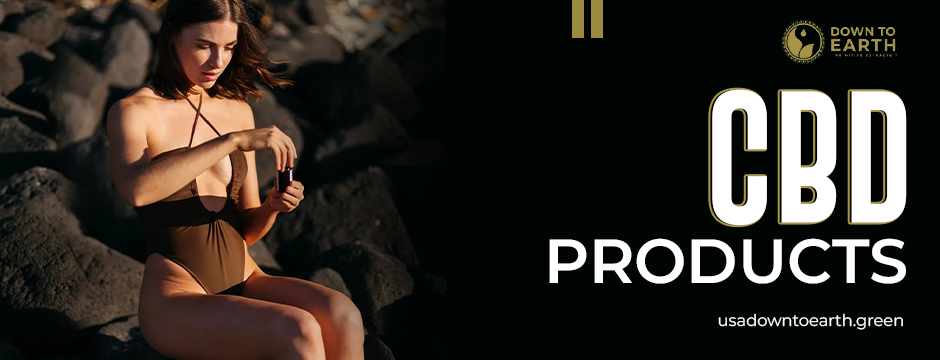
Why Blend Native Botanicals with CBD?
It’s simple to think that CBD does everything on its own in a product, but that’s not often the case. The supporting cast—the base oils, essential oils, and plant extracts—have a huge impact on how a product feels, smells, and performs on your skin.
That’s where native Australian botanicals truly excel.
They don’t fight with CBD. Rather, they add their own quiet strengths to the mix: scent, skin-calming effects, antioxidants, and sensory richness. They complete the formula, making it feel more earthy, more whole, and more pleasant to apply over time.
And since these ingredients are grown in our own soil, there’s an inherent connection—a sense of paying homage to the land and its heritage without having to go abroad.
Sustainability Matters, Too
Something that can’t be overlooked when dealing with native plants is the ethics of harvesting them properly. Some plants—such as Pineapple Myrtle—are extremely rare, and their growth patterns are sensitive. Ethical sourcing isn’t a catchphrase in this instance; it’s an actual promise to uphold biodiversity and honor Indigenous knowledge.
The top brands using native botanicals go out of their way to work with local farmers, promote regenerative methods, and never mass-harvest. That way, each drop of essential oil or plant extract carries care and intention behind it.
The Bigger Picture of Harmony
Ultimately, the inclusion of native Australian botanicals in CBD products isn’t merely a matter of scent or branding. It’s about balance—between science and nature, between ancient and modern, and between our bodies and the products we place on or within them.
Here at Down To Earth, we’ve invested the time to meticulously curate indigenous ingredients that respect the integrity of CBD. We develop each product with consideration, care, and affection for the territory we live and love.
So whether you’re looking to give your first CBD balm a go, or add some new oil or edible to your wellness kit, we welcome you to browse our range. Let Australia’s native flora lead you—naturally, gently, beautifully—with each application.
Down To Earth: where CBD finds the essence of the bush.
